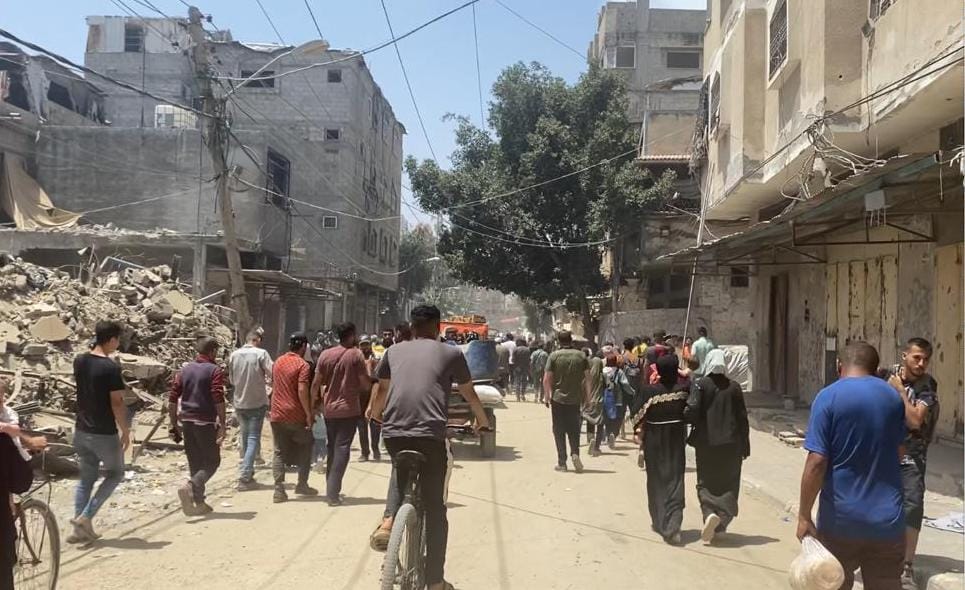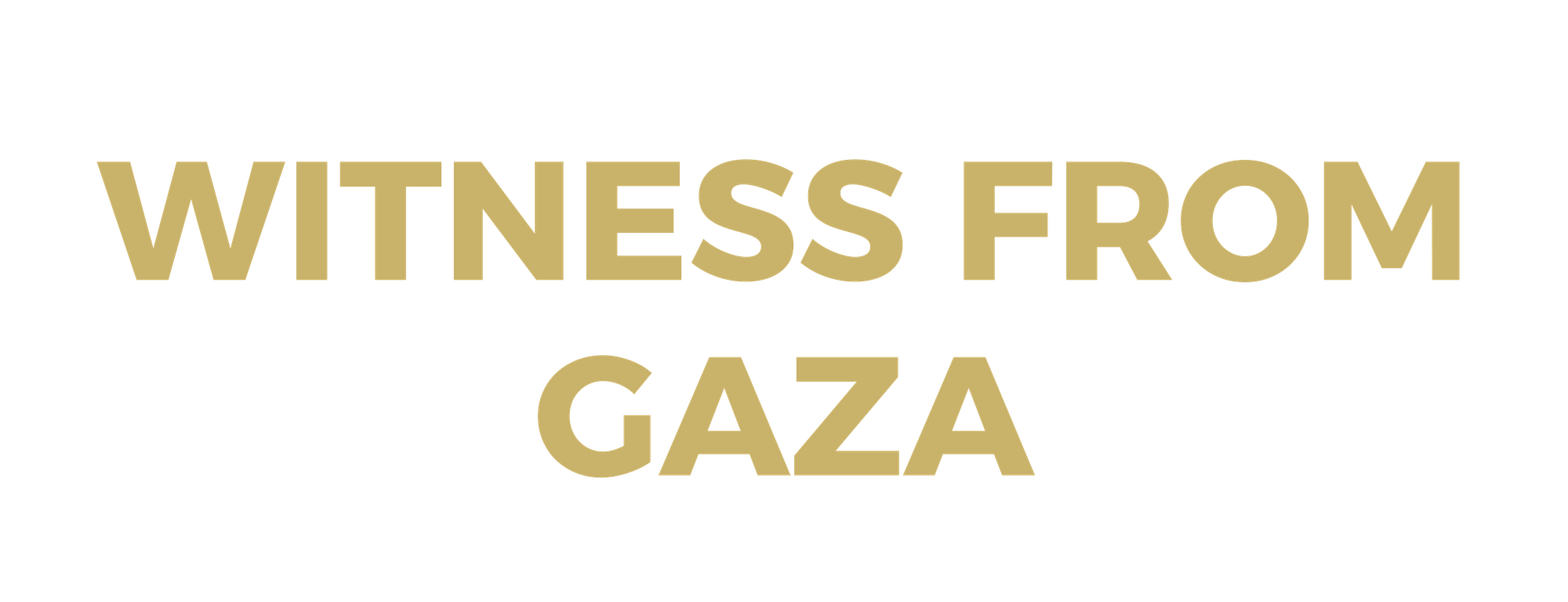The Suffering of Displacement: The Journey of Survival in Gaza. Tuesday 9/7/2024
Displacement for the fifth time, at least, was different.

The battle of consciousness expands as the human experience grows. Whenever one has more of an inclination towards seclusion, socializing only when necessary, one must remember that this does not imply living in complete isolation from the community; we must strive for the cohesiveness of the people, and by extension the society.
Displacement for the fifth time, at least, was different. For nine months, my family and I have been taking refuge in Gaza European Hospital, using whatever we could from the hospital supplies to make our lives more manageable after our home was bombed over our heads and my father was severely injured. We all eluded death at the time, yet it still haunts us.
Five days ago and after a hard day's work, I took an afternoon nap, and when I woke up I found everyone at the hospital talking about an evacuation. The IOF is calling many people informing them to evacuate the hospital immediately and head towards the safe humanitarian zones. Everyone started packing whatever they could from their belongings and headed to Mawasi Khan Younis. Many of them went to different places, like Deir El- Balah and Nuseirat, despite the danger in these places, people are left with no choices; the entire Gaza strip has turned into confined and cramped spaces, and you cannot easily find a place to seek shelter.
Fearful of the IOF storming the hospital at any moment without giving people time to evacuate, like they did in Rafah, my family and I had decided to stay at a friend’s in Nuseirat and then look for a place to pitch our tent the following day.
We tried starting my brother’s car for many hours, as it was damaged when our house was bombed. By the time we were able to start the car, night had come and with it fear of its darkness. People were haphazardly moving around the hospital. Our attempts to get a hired car were in vain, all the cars were already taken earlier by people. There was a line of cars on the street leading to the entrance of the hospital, which also happens to be a lively market for the displaced and patients. The sellers’ situation also took a turn, as they started selling fruits at a very low price compared to an hour earlier..
The street width was average sized, and it was overly crowded with lines of cars and displaced people desperately searching for ways to survive. Sellers were crying out the low prices of their goods and a big selling frenzy was underway, since this was a rare opportunity. All of this added to the congestion. More so, the taxi drivers are demanding very high prices, but the people have no choice but to comply, after all, their survival is everything to them.
It was 9pm when we finally packed some of our belongings in our dilapidated car. I decided to take my family to my friend Muhammad’s house in Nuseirat, until we could find a place the next day. The car moved through a very crowded road; cars were everywhere. Whoever failed to find a vehicle rode on a donkey cart, and whoever didn’t find anything went on foot, with their packs on their backs, driven only by their fear. By midnight, all the cars stopped moving because of the gas vans entering through Karam Abu Salim crossing. It felt as if the occupation was clamping down on us, even as we were running for our lives.
The car moved slowly as the congestion started to lessen. People were fleeing into Muwasi as we went on our way to Nuseirat. No lights illuminated the path, our car was the only one in a road of darkness, and the sounds of drones louder above us. We managed to arrive at my friend’s house. We unpacked our belongings and moved them to the rooftop. We stayed in a room made of asbestos, near Netzarim Checkpoint. The sounds of the aircrafts were very loud, and the bombardament flared up. There was a grave situation happening near the checkpoint and the artillery was going on for many hours. My mom and siblings were consumed by their fear and no one could go to sleep until early morning.
The next morning we started planning where to go. Muwasi is too crowded, there isn’t a vacant place there, nonetheless we tried hoping we could find one. The next day someone called and said he could provide a tent in Sumod camp in Muwasi Khan Younis, if not today, then at least in a couple of days. So we went to the refugee camp carrying all our belongings. Despite my father’s compromised health being overexposed to the sun and in need of three eye surgeries, the camp still would not provide us with a tent. So we stayed at our relatives’ tent in the same camp. My father and brother went to Asdaa city to stay with our aunt in her tent. We remained there a couple of days in hopes to find a tent, or in the very least a vacant spot to pitch our tent. Even though there were available tents, yet the hospital’s camp administration did not supply us with any tents and claimed that neither tents nor spaces were available.
We stayed at Om Muhammad’s tent for two days. Fifteen people were staying in a 4 meter square tent covered with leather and in front of the tent, 2 meter square yard. The tent’s color inside-out is white like a coffin, as though it’s shrouding a mass grave. Women sleep in the tent while the men sleep in the outside yard. During daytime, the tent feels hot as hell due to the heat of the sun. We’re fully covered in sweat. In order to avoid any heatstroke, we wait until the sun’s heat starts to lessen so we can perform any task outside of the tent.
After two days we lost all hopes to secure a tent in the camp. What distinguishes this camp from all the other places is water availability and other necessities of life, like toilets and sewage drainage near the camp, thanks to the volunteers who helped build them. Elsewhere you’ll have difficulty accessing water and hauling it back where you are staying, or you’ll go through the hassle of buying water if there isn’t any free water nearby.
After two days, my father called and informed us that he found a place in Asdaa. My brother was with him, so he went to the market and bought a tent. Then, he and my relatives started pitching it. On the third night, a car came to load up our belongings once more to go to Asdaa. On the morning of the fourth day, I started to build a space in front of our tent so we could store our belongings, covering it from above then building a squat toilet inside, and we were finished by nighttime.
Then we were back to the same suffering and hardship, in the morning the tent is burning hot and at night it’s freezing cold. The tent is 5x5 meters and the front yard is 3X3 meters. The hexagonal-shaped tent’s color is blue from the outside and white from the inside. I look at the sky through the roof of the tent and I ponder to myself when will all this end so we could return to our home?
